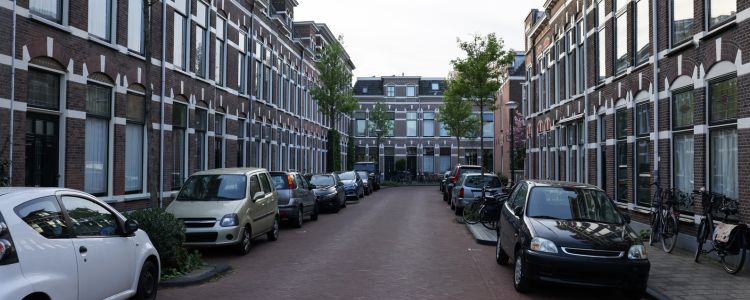In today’s time, navigating the urban landscape in India often presents the face-to-face challenge of finding the perfect parking space. It is important to have good parking management so that harmony can be maintained. This also helps to ensure the smooth movement of vehicles. In this guide, we will shed light on the important car parking rules in residential areas across India.
It will also help visitors and residents have a comprehensive understanding of all the essential rules that govern the vital aspects of urban living.
From congested species to time restrictions. Let’s examine the important guidelines that contribute to an organised and good parking experience.
Table of content:
- Why Car Parking Rules Matter in Residential Areas
- Apartment Acts: Customised Rules for Housing Societies
- Parking Issues and Car Parking Rules in the Indian Housing Society
- Parking Rules in Residential Areas in India: The Role of RWAS
- Types of parking in housing societies according to car parking rules
- Conclusion
Why Car Parking Rules Matter in Residential Areas
Residential parking regulations are important to follow in residential areas for many reasons.
One of the most important reasons is to help manage the limited parking spaces efficiently. They also prevent congestion and make sure that all the residents have fair access to the parking spaces.
Good parking rules for apartments in India also contribute to increased safety within neighborhoods by maintaining clear roads in case of emergencies and for pedestrians.

Moreover, car parking rules in residential areas play a very important role in saving the aesthetic appeal of residential areas. A well-maintained and good parking space will contribute to a more attractive living environment. This also positively impacts the value of the property and the overall satisfaction of the community.
Apartment Acts: Customised Rules for Housing Societies
Apartment Acts and Parking Norms are very important to maintain the decorum as well as help people use parking spaces efficiently.
Let’s explore the apartment acts in different states.
- Maharashtra
In Maharashtra, the housing societies work under MOFA. This act helps societies formulate according to the law. Also, it gives them the authority to create custom rules for parking.
- Karnataka
In the state of Karnataka, housing societies govern under this act. This gives them the power to regulate common areas, such as parking spaces. Society can easily make rules to optimise the space for parking. These rules address the specific demand for residential housing that ensures fair distribution.
- Delhi
According to Indian parking laws, in Delhi, housing societies derive their rules and framework from this act. It helps societies craft the laws they want. This helps people change the rule that can solve the problem of limited parking spaces.
Also know the Construction of multi-level parking in Delhi at Chandni Chowk
Legal Regulations for Parking in Residential Areas
In India, parking regulations in residential areas are governed by a combination of municipal bylaws, RERA (Real Estate Regulation and Development Act) guidelines, and local housing society rules. It’s important for residents and developers to understand these legal frameworks to avoid conflicts and ensure the proper use of parking spaces.
- RERA Guidelines for Parking:
- Under RERA, developers must allocate parking spaces based on the size and nature of the project. The number of parking spots should be proportionate to the total number of units in the building.
- RERA mandates that parking space cannot be sold or transferred separately from the property, and it must be included in the property’s sale agreement as a part of the common area.
- The law also requires developers to obtain the necessary permissions from local authorities to ensure parking arrangements align with urban planning norms.
- Municipal Parking Bylaws:
- Local municipal authorities across cities like Delhi, Mumbai, and Bengaluru have specific bylaws governing parking spaces in residential complexes. These rules determine how parking spaces are designed, the minimum number of spaces required per unit, and the enforcement of parking rules.
- For example, many cities mandate that parking must not obstruct emergency exits or impede traffic flow, and parking lots should be easily accessible and compliant with safety regulations.
- Legal Aspects in Housing Societies:
- In housing societies, parking is often a shared facility, and there are laws governing its use. Society members must adhere to the rules set by the managing committee. Any deviation can lead to fines or even legal action.
- If a resident is found parking in a reserved spot, a formal complaint can be filed with the housing society, which may lead to penalties or eviction from the parking space.
By adhering to RERA and municipal guidelines, property developers and housing societies can avoid legal issues and ensure a smooth experience for residents regarding parking arrangements.
Tips to Resolve Parking Disputes
Parking disputes are common in residential complexes, often arising due to a lack of clear rules, misunderstandings, or improper usage of designated parking spaces. Here are some practical steps to help resolve parking issues:
- Understand and Follow the Society’s Rules:
- The first step in resolving parking disputes is understanding and following the rules set by the housing society. Parking space allocation should be clearly defined in the society’s bylaws. Ensure that residents know the rules and respect others’ designated spaces.
- If the society does not have a clear parking policy, request the management committee to create one to avoid confusion and conflicts in the future.
- Report the Issue to the Society’s Management:
- If a resident is improperly occupying a parking spot, the first step is to inform the society’s managing committee or security staff. Many societies have a formal complaint mechanism to report parking violations.
- The society should conduct a fair inquiry and take corrective action, such as issuing a warning, imposing fines, or reallocating the parking spot.
- Use a Mediation Approach:
- In cases where there is a disagreement between residents about parking, a mediation approach may help resolve the issue amicably. Invite the concerned parties to discuss the problem and find a mutually agreeable solution.
- Often, parking disputes arise from misunderstandings about spot allocation, so having an open dialogue can clear up confusion.
- Allocate Visitor Parking Wisely:
- If the issue is related to visitor parking, make sure the society has a well-defined visitor parking policy. Visitor parking should not interfere with residents’ designated spots, and there should be an allotted number of spaces for guests.
- Legal Intervention:
- If the dispute is not resolved at the society level, legal action may be the last resort. Depending on the severity of the dispute, residents can approach local courts or consumer forums, citing violation of RERA guidelines or municipal parking bylaws.
- Before pursuing legal action, it’s advisable to consult with a legal expert to understand the best course of action and the likelihood of a favorable outcome.
Let’s understand how apartments empower housing societies.
- Autonomy in rule formulation
Apartment acts offer housing societies the freedom to create laws. This gives them the freedom to customise rules that solve the unique challenges as well as the demands of the community.
- Efficient parking management
The state-specific parking rules provide power to societies. These acts help to contribute to the efficient management of the spaces available for parking.
Parking Issues and Car Parking Rules in the Indian Housing Society

In today’s time, there are several parking issues. And to solve this problem, there are parking rules. Let’s look at some of the common parking issues.
- Unauthorised Parking
This is the most common issue with parking. It happens when the cars are not parked in their designated or specified areas. This issue can result in congestion, safety hazards, etc.
- Nomarkingss orstructuree
Wrong parking or the unavailability of a proper structure for parking is also a common parking issue. This issue can generate chaos and disputes among society members.
- Guest Parking
Generally, the majority of societies have particular areas that are designated for guest parking. The residents need to be aware of these parking spots. This will make sure that the guests have parked in the right place.
- Tenant Parking
This is similar to the guest parking; some specific areas are allocated to the tenants. There should be proper understanding among both landowners and tenants, and they should abide by these regulations.
- Unfair Parking Spot Allotment
Unfair parking slot allotments refer to a situation where some of the residents get preferential treatment in terms of parking space allotment. The housing societies must opt for fairness and transparency while allocating parking spaces to the residents.
Also Read the 12 Important Things to do after buying a Real Estate Property.
Parking Rules in Residential Areas in India: The Role of RWAS
In residential areas, the RWA plays a very significant role in formulating and implementing the parking rules. Let’s closely examine the importance of RWA in formulating the parking rules.
- Parking policy formulation
The RWA is often responsible for formatting the parking space allocation guidelines. These policies address several parking-related issues, such as visitor parking, Unauthorised parking, etc., and help solve them.
- Designated parking space
One of the important works of RWA is working towards allocating a particular area of parking to people. This move ensures fair distribution and well-being, and it also eliminates parking-related issues.
- Visitor parking guidelines
RWA is also responsible for providing adequate guidance for visitors’ parking. It is important to have clear communication between RWA and the society members for communicating these guidelines.
There are some other rules you need to remember when parking your car in an Indian housing society.
When you are parking your car in Indian society, it is important to have some of the important rules and regulations, which are stated below.
- Speed limits within society
This is one of the important rules to consider that comes under the Apartment Acts and Parking Norms. While driving in society, it is important to refer to the speed limit. Following this rule will not only maintain discipline but also ensure safety.
- Prohibition of double parking
This is the most common problem in society. It refers to the situation when a vehicle holds more than one vehicle space. This should be avoided, as it can lead to disputes in society.
- Emergency vehicle access
This is also one of the parking rules that includes maintaining a proper space for emergency vehicles. The residents need to maintain a proper, clear space so that emergency vehicles can easily go to situations of emergency.
Types of parking in housing societies according to car parking rules
There are several types of parking specially developed by the best real estate companies in India for their society. Here are some of the types of parking:
- Open parking
They are uncovered parking spaces that don’t have any particular structure. They work on a first-come, first-served basis.
- Visitor parking
These are parking spaces that are specially designed for guests as well as visitors.
- Covered parking
They are parking spaces that have overhead structures. They are good for the protection of cars from weather conditions.
Conclusion
In today’s time, effective car parking rules, according to Indian housing societies, are important for maintaining order. Many rules and regulations should be followed while parking in a society. These rules and regulations are by the RWA of the society that aims to make and implement these rules.
Rules such as a fair allotment of parking spaces, a speed limit, etc. Moreover, Property is one of the top builders in India that provides top-notch residential car space. Following these rules not only solves the issues but also maintains the safety of the society members.


